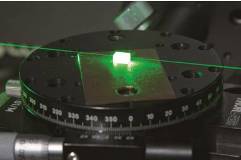Faculty of Science and Engineering
Electrical, Electronic, and Communication Engineering

The aim of our department is to nurture leading researchers and engineers who are competent to work actively at the forefront of R&D activities in the areas of Electrical, Electronic, and Communication Engineering (EECE) and related technologies.
Playing a central role in the revolutionary development of industry, EECE benefits people worldwide. In particular, our lives cannot be imagined without electric power supplies, telecommunications services, electrical and electronic appliances, and various systems that involve microprocessors and/or computers. Moreover, the fundamental and application areas covered by EECE are still actively expanding through the invention of theories and technologies for creating new industries and products in pursuit of affluent, stable and secure lives in a highly advanced information and communication society.
In our department, students are able to study science and technologies related to electric power, electronics and communication, as well as complex systems, such as computers, robots, and software. Electric power engineering ranges from fundamental power electronics to next-generation eco-friendly systems to generate, store and transfer energies. Electronics covers electronic materials, opto-electronics, semiconductor engineering, and device, circuit and system integration technologies. Communication engineering includes electromagnetic waves, information theory, signal processing, mobile computing, internet technologies and quantum technologies. In addition to these disciplines, control is an important aspect, which handles complex systems including robots, vehicles , and social systems combined with computer networks.
Fields of interest
- Bio-Signal Sensing and its Application to Wearable Robotic Systems
- Communication Network Systems
- Electrochemical Engineering for Energy and Health Care Devices
- Electromagnetic Fields and Waves
- Electromagnetic Wave Propagation Analysis and Antenna Engineering
- Electrophysiology
- Field and Space Robotics
- Intelligent Robots and Systems
- Laser Materials, Devices, and Applications
- Mechatronics
- Multimedia Signal Processing
- Numerical Analysis of Nonlinear Circuits and Systems
- Organic Electronics
- Quantum Computing
- Terahertz and Optical Sensing









